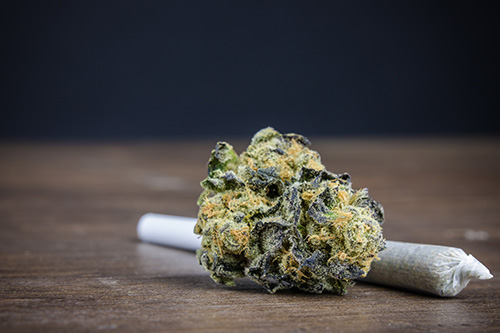 Many drivers this time of year tend to find themselves in trouble with the law for driving after having one too many drinks at the office Christmas party or at the family Christmas get-together. For those drivers pulled over for suspicion of Driving While Impaired, they will almost invariably be subjected to a preliminary breath test (PBT, or breathalyzer) before the officer ever handcuffs them. Though the actual results of the breathalyzer (beyond “positive” or “negative” for alcohol) are not admissible in North Carolina courts, the officer will use the results to determine whether he needs to arrest, further his investigation, or let the driver go about his merry way
Many drivers this time of year tend to find themselves in trouble with the law for driving after having one too many drinks at the office Christmas party or at the family Christmas get-together. For those drivers pulled over for suspicion of Driving While Impaired, they will almost invariably be subjected to a preliminary breath test (PBT, or breathalyzer) before the officer ever handcuffs them. Though the actual results of the breathalyzer (beyond “positive” or “negative” for alcohol) are not admissible in North Carolina courts, the officer will use the results to determine whether he needs to arrest, further his investigation, or let the driver go about his merry way
With marijuana use becoming more and more socially acceptable, police officers often find themselves at a loss for determining whether a driver is impaired by marijuana. Specially-trained officers can use a battery of field tests to help determine if a driver is impaired by drugs, but these tests still involve a bit of guesswork. Oftentimes prosecuting a marijuana-based DWI hinges upon a driver’s blood results. In 2012, 18.6 percent of blood samples taken from suspected impaired drivers in Washington State tested positive for active THC, according to the Washington State Toxicology Laboratory. Unfortunately for prosecutors, blood analyses typically require a search warrant to draw the blood and can take up to months or years to be processed by state crime labs.
There really hasn’t been any immediate detector of THC in a person’s bloodstream – until now. Researchers from Washington State University say they are working on a breathalyzer to detect the presence of THC – the psychoactive component of marijuana. They are hoping to re-purpose existing technology used by airport security to detect explosives and illegal drugs. The researchers are hoping this device will work similarly to the alcohol breathalyzer, which measures the level of alcohol dissolved in a person’s bloodstream via a breath sample.
This marijuana breathalyzer could be an interesting development in the field of DWI law, assuming it is actually developed and can stand the tests of accuracy and reliability. Given that marijuana – whether it’s THC or one of its metabolites – can remain present in a person’s bloodstream for hours, days, or weeks after ingesting marijuana, I will remain skeptical of this technology. On one hand, this marijuana breathalyzer can save convicted defendants the hefty cost (close to $1000) of reimbursing the state for the cost of the blood analysis if the officer foregoes a blood draw. On the other hand, I can foresee a lot of false positives from people who have recently ingested marijuana but are not currently under the impairment of its effects. And if this marijuana breathalyzer doesn’t yield more accurate results than a traditional blood analysis, then prosecutors will probably still want blood analyses, which will not alleviate the massive backlog and delay of blood analyses from the state crime labs. Only time will tell if this is ground-breaking technology or just a prosecutor’s pipe dream.
